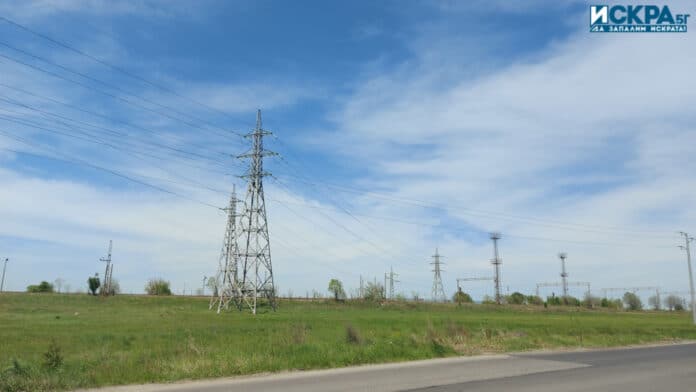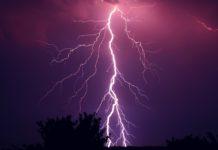
Daily electric shocks harass the residents of three Burgas neighborhoods – „Banevo“, „Vetren“ and „Sarafovo“. As Iskra.bg already wrote, the problem has been around for years, but it has not been resolved to this day. On July 4, a meeting was held between EVN and citizens, where these issues were discussed. People were not satisfied with the answers they received, because it became clear that until the European project won by EVN under the „LIFE +“ program is implemented, the electric shocks will obviously continue.
The editors of Iskra.bg also addressed the electricity distribution company with a number of questions, to which we received a long but concise answer. The main thing in it is that migratory birds are to blame for frequent power outages:
„As is known, the Via Pontica („Via Pontica“) passes through the area around the Burgas Lakes – one of the main migration routes of birds between Europe and Africa. During the spring migration, over 550,000 birds cross from Africa to Europe, during the autumn migration, over 880,000 birds fly from Europe to Africa. Over 78% of the entire world population of the white stork, for example, passes through this migration route. The area around Burgas, in addition to being on the migration path of birds from Europe to Africa, is also one of the most densely populated residential areas in the country with numerous neighborhoods and small settlements. All of them are fed by a densely saturated network of overhead power lines surrounding the Burgas lakes and wetlands, and which power lines are used by thousands of migratory birds to land. Multiple settlements also mean multiple waste storage sites, which are a natural attractor for foraging birds, which, especially during migration periods, leads to their congregating.“
EVN also claim that electric shocks most often occur when birds take off that have tripped over power lines:
„Spreading the wings creates an ‘arcing’ effect that can cause a temporary shutdown, switchover or longer-term crash.“
The Initiative Committee from the three neighborhoods, whose representatives we talked to before the meeting, are adamant that the birds cannot be the cause of the frequent power outages, because they also happen during the dark part of the day. And, as is known, at that time the birds are not active. That is, it is very likely that the reason is other than the one indicated by the ERP.
The company also points to the fact that, in the 1950s and 1960s, the distribution network in the area was built as an aerial, not underground, as a prerequisite for the frequent power outages. They claim that if this had not been done, there would be no problem today. That is why EVN has decided that every network will now be built only underground. But there remained the question of the existing one around the Burgas lakes.
„Due to their large number and kilometers of length, automatically bringing them underground is an expense that, calculated through the prices that customers would have to pay, would be difficult for society to accept. Thus, the company adopted a mixed approach: securing and isolating the existing overhead power lines, and where possible – providing alternative routes to supply customers,“ the company also states.
That is why EVN applied for a European project, but it will not be implemented until 2026. The concerns of the citizens are that during this time the problem will continue and their electrical appliances will burn out again, that is, they will not receive quality service, for which the necessary and timely actions are obviously not being taken.
Otherwise, the total value of the project is 5.5 million euros, with 75% of the funds provided by the European Commission /EC/, and 25% – by ER Yug, EVN explained. They will be used to:
– Underground laying (cabling) of 52 km of overhead power lines 20 kV (medium voltage), which completely eliminates the risks to wild birds
– Securing (through protective insulation) 2000 poles from the 20 kV power distribution network (medium voltage)
– Installation of 2,000 diverters (reflective markers) along overhead power lines. Through them, the probability of flying birds colliding with the overhead wires is reduced.
– Construction of 18 substations and a new hub station.
Another big problem at the moment for citizens is that the company refuses to provide information about the number and frequency of electric shocks. Therefore, one of the representatives of the Initiative Committee, Yavor Slavov, submitted a request to place a measuring device in his home. In this way, it will be proven that electric shocks are a daily occurrence. He is still waiting for an answer to his request and has not been contacted by the company, Slavov himself told Iskra.bg.
The meeting on July 4 was also attended by the former Deputy Minister of Energy from GERB Zhecho Stankov. Iskra.bg managed to contact him and asked to find out in what capacity he joined the conversation. Stankov said he went as a citizen. He also spoke about the project under the European program „LIFE“ and about the birds that landed on the wires. When asked by Iskra.bg why he did not do what was necessary for the problem to be resolved during the time he was in a leadership position in the ministry, he answered:
“That’s a great question you ask me. And if you follow this project as it was won, you will see what actions the state has taken to assist. When you consume electricity in your account, there is another order besides electricity, and if this happens with the funds of one of the ERPs, they submit it to KEVR and they charge them to your account. And that’s why the best option we found is to apply for a European project, and this will not affect people’s bills in any way, because they cannot be claimed by the electricity distribution company.“
Iskra.bg asked to know Stankov’s opinion about the rules for quality service, which are issued by the Commission for Energy and Water Regulation /KEVR/ and whether they should be changed. He did not specify whether or what revisions should be made, but made it clear that he was positive about such changes if they would benefit consumers. And he emphasized that KEVR is an independent body, and whatever changes are made, they will first be subject to public discussion.
Iskra.bg also sought comments from the chief experts of the affected Burgas neighborhoods. Mancho Donchev, who is in charge of Banevo district, indicated that this problem is not within his jurisdiction and we should contact EVN.
„You should talk to EVN about this. He’s an operator. I don’t have the authority, sorry. When I was the mayor of Banevo, EVN completely renewed the aerial network – with new poles, new wires. A lot of money has been invested by the company to improve the service. The last thing they did was a new hub station at Mineralni Bani, which serves both Banevo and Vetren. EVN has an investment program that was implemented at the time. And the improvements in Banevo are obvious“, he said.
Hristina Yancheva, who is the technical secretary for „Vetren“, is also aware of the problem because the residents of the neighborhood turn to her. She, for her part, sent letters to EVN. But as you can see, the problem is still not solved.









